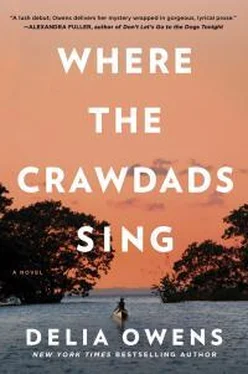“Jodie, it’s okay. You were just a kid yourself. What could you do?”
“I could’ve come back when I was older. At first it was day-to-day survival on the back streets of Atlanta.” He sneered. “I left here with seventy-five cents in my pocket. Stole it from the money Pa left in the kitchen; took it knowing it would leave you short. I scraped by on odd jobs till the army took me in. After training, it was straight to war. When I got home, so much time had passed, I figured you were long gone, run away yourself. That’s the reason I didn’t write; I think I signed up to go back as a kind of self-punishment. What I deserved for leaving you. Then after I graduated from Tech, a couple of months ago, I saw your book in a shop. Catherine Danielle Clark. My heart just broke and leapt for joy all at once. I had to find you—figured I’d start here and track you down.”
“Well, here we are then.” She smiled for the first time. His eyes were the same as they had been. Faces change with life’s toll, but eyes remain a window to what was, and she could see him there. “Jodie, I’m so sorry you worried about leaving me. Not once did I blame you. We were the victims, not the guilty.”
He smiled. “Thank you, Kya.” Tears welled, and they both looked away.
She hesitated, then said, “This may be hard to believe, but for a while Pa was good to me. He drank less, taught me to fish, and we went out in the boat a lot, all over the marsh. But then, of course, he went back to drinking and left me to fend for myself.”
Jodie nodded. “Yeah, I saw that side of him a few times, but he always went back to the bottle. He told me once it had something to do with the war. I’ve been to war myself and seen things that could drive a man to drink. But he shouldn’t have taken it out on his wife, his own kids.”
“What about Ma, the others?” she asked. “Did you ever hear from them, know where they went?”
“I don’t know a thing about Murph, Mandy, or Missy. I wouldn’t know them if I passed them in the street. By now I ’spose they’ve scattered with the wind. But Ma, well, Kya, that’s another reason I wanted to find you. There is some news of her.”
“Some news? What? Tell me.” Chills flowed from Kya’s arms to her fingertips.
“Kya, it’s not good. I only found out last week. Ma died two years ago.”
She bent at the waist, holding her face in her hands. Soft groans came from her throat. Jodie tried to hold her, but she moved away from him.
Jodie continued. “Ma had a sister, Rosemary, who tried to track us down through the Red Cross when Ma died, but they couldn’t find us. Then a couple of months ago they found me through the army and put me in touch with Rosemary.”
In hoarse tones Kya mumbled, “Ma was alive until two years ago. I’ve been waiting all these years for her to walk down the lane.” She stood and held on to the sink. “Why didn’t she come back? Why didn’t somebody tell me where she was? And now it’s too late.”
Jodie went to her, and even though she tried to turn away, he put his arms around her. “I’m sorry, Kya. Come sit down. I’ll tell you what Rosemary said.”
He waited for her, then said, “Ma was ill from a major breakdown when she left us and went to New Orleans—that’s where she grew up. She was mentally and physically ill. I remember New Orleans a little bit. I guess I was five when we left. All I remember is a nice house, big windows overlooking a garden. But once we moved here, Pa wouldn’t let any of us talk about New Orleans, our grandparents, or any of it. So it was all wiped away.”
Kya nodded. “I never knew.”
Jodie continued. “Rosemary said their parents had been against Ma’s marriage to Pa from the start, but Ma went off to North Carolina with her husband, not a penny to their names. Eventually Ma began writing to Rosemary and told her of her circumstances—living in a swamp shack with a drunk man who beat her and her children. Then one day, years later, Ma showed up. She had on those fake alligator heels that she cherished. Hadn’t bathed or combed her hair in days.
“For months Ma was mute, didn’t speak one word. She stayed in her old room in her parents’ home, barely eating. Of course, they had doctors come out, but no one could help her. Ma’s father contacted the sheriff in Barkley Cove to ask if Ma’s children were all right, but his office said they didn’t even try to keep track of the marsh people.”
Kya sniffed now and then.
“Finally, almost a year later, Ma became hysterical and told Rosemary she remembered she had left her children. Rosemary helped her write a letter to Pa asking if she could come get us and bring us to live with her in New Orleans. He wrote back that if she returned or contacted any of us, he would beat us unrecognizable. She knew he was capable of such a thing.”
The letter in the blue envelope. Ma had asked for her, for all of them. Ma had wanted to see her. But the outcome of the letter had been vastly different. The words had enraged Pa and sent him back to drinking, and then Kya had lost him as well. She didn’t mention to Jodie that she still kept the letter’s ashes in a little jar.
“Rosemary said Ma never made friends, never dined with the family or interacted with anybody. She allowed herself no life, no pleasure. After a while, she started talking more, and all she talked about was her children. Rosemary said Ma loved us all her life but was frozen in some horrible place of believing that we’d be harmed if she returned and abandoned if she didn’t. She didn’t leave us to have a fling; she’d been driven to madness and barely knew she’d left.”
Kya asked, “How did she die?”
“She had leukemia. Rosemary said it was possibly treatable, but she refused all medication. She just became weaker and weaker, and slipped away two years ago. Rosemary said she died much as she had lived. In darkness, in silence.”
Jodie and Kya sat still. Kya thought of the poem by Galway Kinnell that Ma had underlined in her book:
I have to say I am relieved it is over:
At the end I could feel only pity
For that urge toward more life.
. . . Goodbye.
Jodie stood. “Come with me, Kya, I want to show you something.” He led her outside to his pickup and they climbed into the back. Carefully, he removed a tarp and opened a large cardboard box, and one by one, pulled out and unwrapped oil paintings. He stood them up around the bed of the truck. One was of three young girls—Kya and her sisters—squatting by the lagoon, watching dragonflies. Another of Jodie and their brother holding up a string of fish.
“I brought them in case you were still here. Rosemary sent these to me. She said that for years, day and night, Ma painted us.”
One painting showed all five children as if they were watching the artist. Kya stared into the eyes of her sisters and brothers, looking back at her.
In a whisper, she asked, “Who’s who?”
“What?”
“There were never any photographs. I don’t know them. Who’s who?”
“Oh.” He couldn’t breathe, then finally said, “Well, this is Missy, the oldest. Then Murph. Mandy. Of course, this little cutie is me. And that’s you.”
He gave her time, then said, “Look at this one.”
Before him was an astonishingly colorful oil of two children squatting in swirls of green grass and wild flowers. The girl was only a toddler, perhaps three years old, her straight black hair falling over her shoulders. The boy, a bit older, with golden curls, pointed to a monarch butterfly, its black-and-yellow wings spread across a daisy. His hand was on the girl’s arm.
“I think that’s Tate Walker,” Jodie said. “And you.”
“I think you’re right. It looks like him. Why would Ma paint Tate?”
Читать дальше











